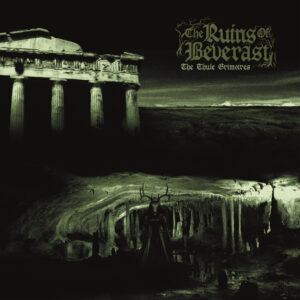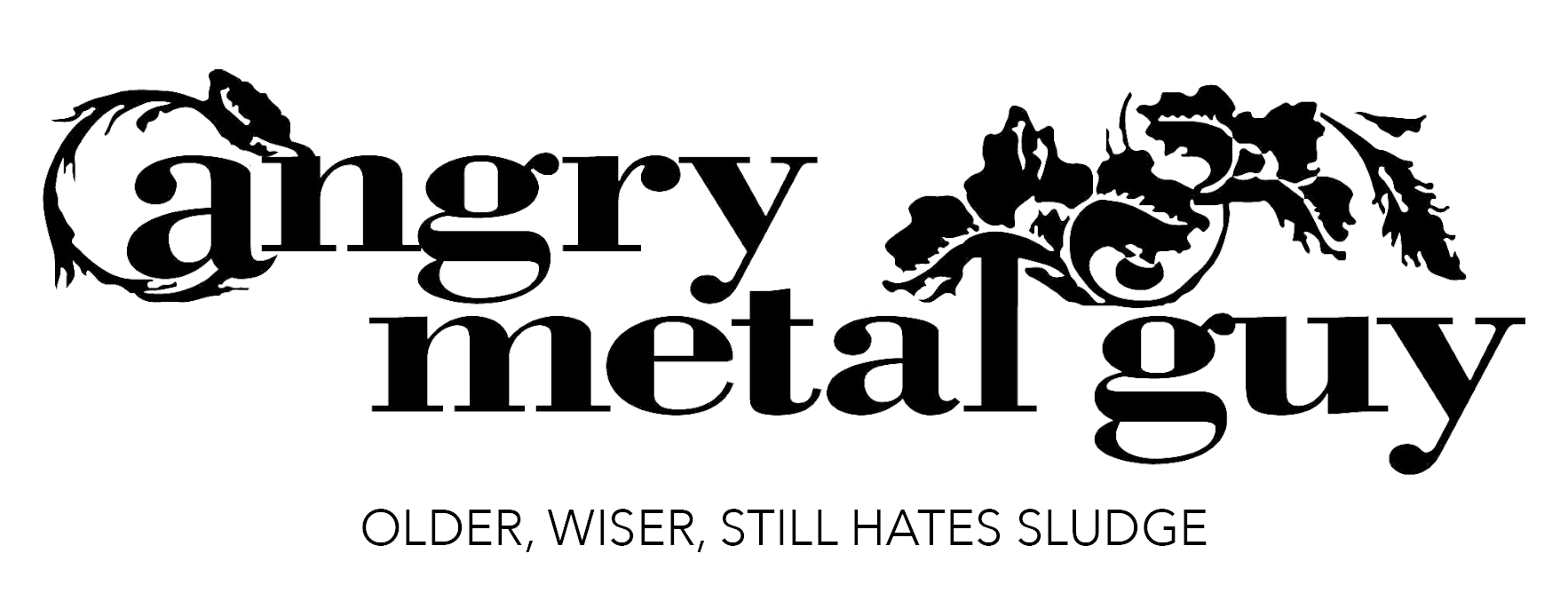 Thule: the northern most part of the ancient world. Grimoire: a text that invokes an evil magic. With his seventh full-length, Alexander von Meilenwald – the single figure at the heart of The Ruins of Beverast – journeys northwards and backwards into a mystical, malevolent past. Gone is the shapeshifting shamanism of 2017’s Exuvia. Only the cold embrace of frost and despair remains. The Thule Grimoires is a grim lament into the headwind of vast tundra, a blackened death-knell, a withered hand reaching into the permafrost for the secrets that lie beneath.
Thule: the northern most part of the ancient world. Grimoire: a text that invokes an evil magic. With his seventh full-length, Alexander von Meilenwald – the single figure at the heart of The Ruins of Beverast – journeys northwards and backwards into a mystical, malevolent past. Gone is the shapeshifting shamanism of 2017’s Exuvia. Only the cold embrace of frost and despair remains. The Thule Grimoires is a grim lament into the headwind of vast tundra, a blackened death-knell, a withered hand reaching into the permafrost for the secrets that lie beneath.
Let us begin with the excellent. The mid-album trio of “Kromlec’h Knell,” “Mammothpolis,” and “Anchoress in Furs” are wonders. Like the blinding reflection of the sun on ice, the melodic guitar lines in the second half of “Kromlec’h Knell” slip and slide with a dense throb. It’s shockingly melodic and pleasant. This is The Ruins of Beverast embracing the biting warmth of ice, a gothic bear hug from one of extreme metal’s most forlorn and impenetrable projects. “Mammothpolis” is eerily sap-like with Meilenwald’s clean vocals warped and bellowing in slow motion above a throbbing, cranking electronic fissure. It’s the perfect bridge between the melodic doom of “Kromlec’h Knell” and the ritualistic reverberations of “Anchoress in Furs.” Less unforgiving, The Thule Grimoires has – compared to most of The Ruins of Beverast’s discography – a prominent melodic soul that fights against a deep, harsh core.
This is not to say that The Thule Grimoires lacks guts. In fact, record closers “Polar Hiss Hysteria” and “Deserts to Bind and Defeat” are some of the most intense and blistering tracks Meilenwald has composed since Rain upon the Impure. “Polar Hiss Hysteria” carries a fizzing blackened menace, aided by wonderful layers of guitar sound and vocal murmuring. The track spasms through realms of black metal, death-doom and melo-death within a seven-minute tourniquet of chaos. As a counter to the desolate atmosphere of previous track “Anchoress in Furs” it excels. Meilenwald relies on Peter Steele-esque clean vocal segments throughout the record, often alluringly deep and sensuous – they are much more central to The Ruins of Beverast’s sound. A depressive, post-punk mutter reverberates at the beginning of vast closer “Deserts to Bind and Defeat.” Meilenwald sounds defeated and depressed, his voice cracking and warbling. The track carries a meditative funerary vibe until, seven minutes in, it erupts – an explosion of lava through ice.

The opening tracks, to end at the beginning, are less instantly gripping – less fire and more ice, a creeping death. They set the scene with typically dense sound but struggle slightly in relation to the excellence of “Kromlec’h Knell” onward. After a stirring blackened opening, “Ropes Into Eden” trails off into sparse, dreamy territories of warped ambient sound. Movement is somber, tentative, and restrained. It’s a peculiar choice for a record opener. It feels, to me, more suited as a follow-up to a blistering opener. Second track “The Tundra Shines” has a guitar fuzz that spits and shines with melody. It’s accompanied by a marching rhythm that possesses a greater sense of urgency compared to “Ropes Into Eden” and ends with a blissful blackened eruption. A simple swap in the track listing – “The Tundra Shines” opening and “Ropes Into Eden” following – might provide The Thule Grimoires with a greater sense of instantaneity.
I stand by the excellent rating I gave Exuvia with confidence and passion; I revisit the record regularly and, by the record’s end, emerge with a renewed appreciation for the shamanistic epic. This is a record I will visit regularly, too. My complaints here are quibbles that convey my reservations about scoring The Thule Grimoires the same as Exuvia. The 24-minutes of the opening two tracks are very good with elements of greatness. The 46-minutes that follow are great with elements of excellence. As a whole, The Thule Grimoires is a great record by an individual who finds fresh and transformative ways to remold the successes of the past. The Thule Grimoires sees The Ruins of Beverast embracing a more traditional spirit of frost and depression. In Exuvia, Meilenwald sounded like a possessed creature incapable of human emotion. It was a trippy beast from beyond this plane of existence. In The Thule Grimoires, Meilenwald – mainly through his stronger use of melody and clean vocal flexibility – is more vulnerable and bereft. The Thule Grimoires is more of a sidestep, an introspective glance in the rear-view mirror. Nonetheless, it’s still The Ruins of Beverast: a mammoth of atmosphere and aggression.
Rating: 4.0/5.0
DR: 7 | Format Reviewed: 320 kbps mp3
Label: Ván Records
Website: theruinsofbeverast.bandcamp.com | facebook.com/The-Ruins-Of-Beverast
Releases Worldwide: February 5th, 2021

















